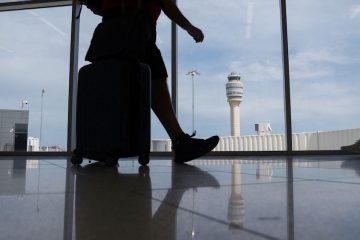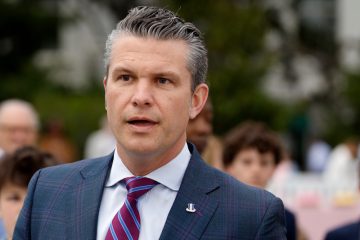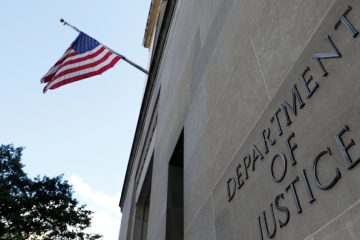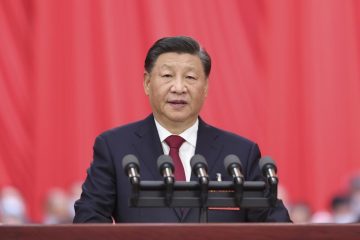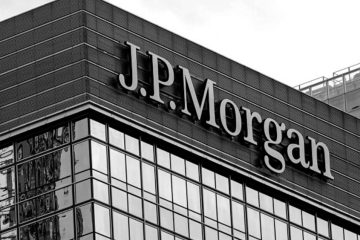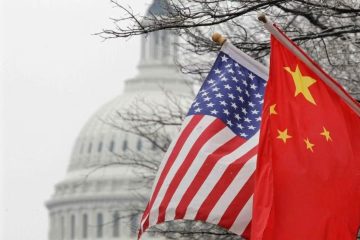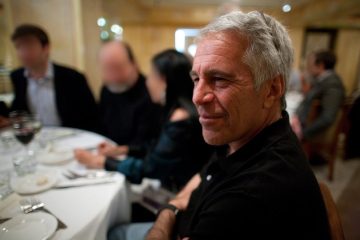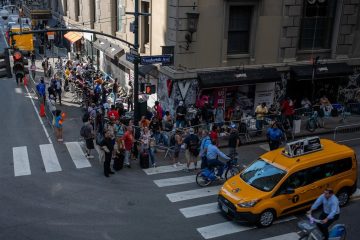How Wall Street misjudged Trump

Financial and commercial titans are realizing they underestimated the president’s second-term ambitions. Wall Street’s most prominent investors and business titans, who controlled hundreds of billions in personal fortune and trillions in assets, lined up like teenagers before a rock performance in mid-February. Trump was the star. Wealthy and CEOs queued up to three hours in a crowded Miami Beach auditorium for the president’s first in-person business talk at a Saudi-backed conference.
When the US president arrived an hour late, Vista Equity’s Robert Smith, Bridgewater CEO Nir Bar Dea, and Apollo co-founder Josh Harris cheered. “If you want to build a better future, push boundaries, unleash breakthroughs, transform industries and make a fortune,” the president stated. “The current and future United States of America under a certain president named Donald J. Trump is the best place on Earth.” Financial markets rose to support that. After four years of being pressured by the Biden administration, America’s financial elite’s “animal spirits” were to be unleashed. The more controversial parts of Trump’s address, including his threat to impose reciprocal penalties on badly treated nations, didn’t worry many. “Not a single person mentioned the word recession or depression,” remarked a Trump attendee. I think it sends a strong signal of business leaders and investors’ optimism and realism.”
Within eight weeks, the situation changed. Those who watched Trump’s address are in damage-control mode as his April 2 trade war destabilized financial markets and raised fears of inflation and a recession. The finance sector was struggling before that. Corporate takeovers are at a 10-year low, top legal firms are under White House criticism, and consultancy giants have lost federal contracts. Delta and Walmart cut profit forecasts. Many worry the tariffs will severely slow America’s economy. “We doubted him. We thought an economist in the government would tell him global tariffs were terrible, says a Wall Street executive. “We will ride a roller-coaster.”
It acknowledges that even many of Trump’s staunchest corporate supporters misjudged his 78-year-old president’s determination to revamp US economic policy and reverse decades of globalization. Trump and his top advisers repeatedly declared they would not create policies for the wealthy on the campaign trail. His vice-presidential pick, JD Vance, said at the Republican convention in July: “President Trump’s vision is so simple and yet so powerful. Women and men, Wall Street service is over. We support the worker.” That sentiment has also been reiterated by US Treasury secretary Scott Bessent, a former hedge fund manager. On CNBC in March, he remarked “Maga doesn’t stand for ‘Make M&A Great Again’”.
The tariff news was crucial for Wall Street. Second-day S&P 500 losses exceeded $5tn. In contrast to his first term’s concern with the stock market, Trump sometimes waved off reporters’ questions, saying he hadn’t checked markets as Wall Street was flooded with red. The White House narrative altered when BlackRock, Apollo, and JPMorgan stocks fell. White House press secretary Karoline Leavitt remarked, “To anyone on Wall Street this morning I would say trust in President Trump.” The country’s highest-paid bankers, lawyers, and executives realized that the new administration didn’t care if the trade policy shook the glittering palace of high finance.
Most grumbled quietly about the high rates and unclear, irregular calculation. But billionaire hedge fund investors Bill Ackman, Dan Loeb, and Cliff Asness vented on X, while Trump’s former commerce secretary Wilbur Ross told the FT: “It’s a fairly unconventional way of measuring tariffs.” Some spoke clearly. “He wants to end global trade and weaken the US. He wants to Brexit the US from the rest of the world, argues Anthony Scaramucci, founder of SkyBridge Capital and Trump’s first-term White House communications director. “This is the stupidest economic policy the US has ever devised.” The business elite initially regarded tariffs as the price to pay for lax antitrust enforcement and large tax cuts under Trump.
More than a dozen investors and executives tell the FT that Trump’s willingness to escalate a trade war has seeded enduring distrust and sparked fears that business finance models can no longer forecast what comes next. “Given our state of ignorance and all we don’t know, [investing now] is like betting on the Super Bowl when you don’t know which teams are playing or who their players are,” Oaktree Capital co-founder Howard Marks says. “Investing is largely based on the assumption the future will look like the past, which appears more tenuous than usual.”
Trump, the son of a New York real estate mogul and a Wharton graduate, has a close association with Wall Street. But it’s often tense. According to friends, Trump often felt neglected by Wall Street’s elite. A close associate of the president who requested anonymity claims the financial elite avoided him in the 1980s when he sought their aid financing real estate projects or criticized him for being a lightweight star. “Trump was never going to be Wall Street’s president.
However, Trump prioritized finance in his first term. He named Goldman Sachs veterans Steven Mnuchin and Gary Cohn Treasury secretary and main economic adviser. He also formed the Strategic and Policy Forum with Wall Street titans Jamie Dimon, Larry Fink, and Stephen Schwarzman. Trump frequently met with them in front of TV cameras. However, his presidency damaged the relationship, and the Capitol riot on January 6, 2021 ended it. Schwarzman, Trump’s business forum head, termed the uprising “appalling”. After other financiers condemned him, the industry withdrew. Schwarzman announced in 2022 that “the Republican party to turn to a new generation of leaders” and would not support Trump in 2024.
Trump friends noticed the rejection. One Trump-connected seasoned banker says, “These guys never took him seriously.” Wall Street was mostly absent when judges slammed Trump over the previous four years. Who was Wall Street’s campaign pick? Kamala Harris, not Trump. Why should he care about Wall Street now? Trump’s resistance faded once he appeared to win in 2024. Schwarzman rejoined in May, calling supporting Trump “a vote for change”. Others followed.
After Trump’s 2024 win, Goldman CEO David Solomon was “quite optimistic” about his pro-growth plan. Dimon told CNBC that consumers should “get over it” as the increased tariffs are a national security precaution. Private equity firms that supported Trump’s opponents paid millions to his inaugural fund to reclaim influence. But few today have the president’s ear. “Trump has surrounded himself with an echo chamber,” claims a private investment business CEO. Except Bessent, there are no real persons with opposing ideas. Much has changed since Gary Cohn introduced balance.”
Trump has targeted disloyal people. His battles with major law firms show his vengeance drive. FT estimates that Paul Weiss, Skadden Arps, and others were coerced into doing roughly $1bn in pro bono work for administration-favored groups out of fear that crossing the White House would break their businesses. An off-the-cuff comment could prompt a White House scolding, so top executives are now more careful with their words. “They’re terrified of him.They don’t want their bank or family sued. Scaramucci says their boards urged them to keep quiet. Every major law firm just got dunked on by the president, so we don’t even have law firms to defend you.
JPMorgan market and investment strategy chief Michael Cembalest hinted to this chilling impact in a client presentation this month. “This is the first time I’ve ever had to do a call where I had to think about the things that I was saying, not just in terms of how they reflect our views on markets and economics,” he remarked after the presentation. I had to consider how they may reflect on the firm and some of its colleagues at a time when people are being held accountable for their beliefs and words in ways they shouldn’t be.” Last week at an Economic Club of New York event, BlackRock CEO Larry Fink declined to comment on Trump’s use of executive orders to attack law firms, including Skadden, BlackRock’s legal adviser. Let’s go on,” remarked the world’s largest asset manager’s head.
Trump, known for his volatility and dealmaking, may be immune to influence due to the chilling effect. Trump confidants claim the finance sector misinterprets his agenda this time. “He wants to do all of that stuff — cut taxes, deregulate, facilitate deals — but he wants to do it to help the people who got him elected, people who live in towns that guys in New York don’t even know exist,” says a second Trump confidant who cannot talk publicly. “He’s a populist serving the people.”
Trump reversed the tariffs not because Wall Street royalty manipulated him. The president witnessed global financial markets falling at morning on April 9. Trump subsequently stated bond markets “were getting a little bit yippy, a little bit afraid” and that he had been monitoring the volatility. One big financier reached him. Dimon made a mild but strong case for the president to stop his trade war that morning. Dimon had not spoken to Trump privately at Mar-a-Lago or the White House. He appeared on Fox Business News. Market conditions had become unfavorable. “The fact that the bond market was moving in the alarm direction rather than the insurance direction was the big pattern breaker that had everyone on Wall Street at a very different level of worked-up,” says former Treasury secretary and Harvard University president Lawrence Summers.
He says that US government bonds suddenly traded like emerging market debt. At the same time, the dollar fell. Hedge firms in Japan and the US unwinding dangerous “basis trades” on Treasury bonds, an obscure, highly leveraged tactic long warned of as a panic trigger, helped break the bond market. Trump’s combativeness frightened international investors, who pulled money from the US. Cracks appeared elsewhere. Even blue-chip multinationals were shut out of the bond market, a rarity, as lending markets for low-rated enterprises and private equity firms froze.
The president temporarily paused reciprocal tariffs after a week of tumult. FT: “Trump is fine with Wall Street taking a hit, but he doesn’t want the whole house to come down,” a Trump source said. Big pattern breaker: bond market moving in alarm direction instead of insurance direction. The fact that the markets forced Trump’s hand shows that his fate is still tied to the financial elite, even if they are sidelined in his cabinet. Trump faces financial system landmines while reshaping global trade. Debt fuels the $13tn private capital industry, which controls a growing share of the US economy and employs over 10mn Americans. Many small and mid-sized enterprises are unstable and vulnerable to shocks due to years of leverage.
With growth slowing and inflation rising, private equity businesses may cut expenses and jobs, worsening the economy. Bankruptcies may increase as default rates rise. Large pension funds investing in private markets may also struggle. Trump says he’ll tolerate economic pain to achieve his goals. “THIS IS AN ECONOMIC REVOLUTION AND WE WILL WIN,” he tweeted on April 5. The White House stated on Monday that “the only interest guiding President Trump’s decision making is the best interest of the American people”.
However, bond yields are rising, the dollar is falling, and his finances are deteriorating. “It’s very clear that reassurance has not been achieved,” adds Summers. “The dollar fell on April 10 and 11, yields are high. People await more shoe drops.” Presently, the future is uncertain. NYU Stern School of Business economics professor Joseph Foudy argues “Liberation Day” was a fundamental setback to Wall Street’s faith and confidence that they could forecast the administration’s actions. “They realise that all of it is fundamentally uncertain and unpredictable.”

